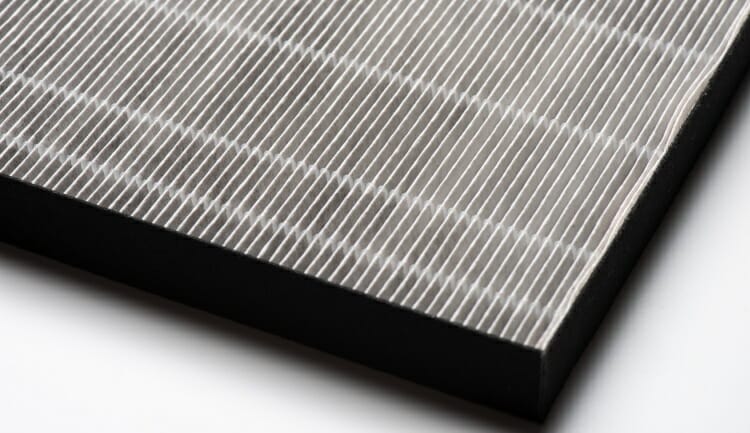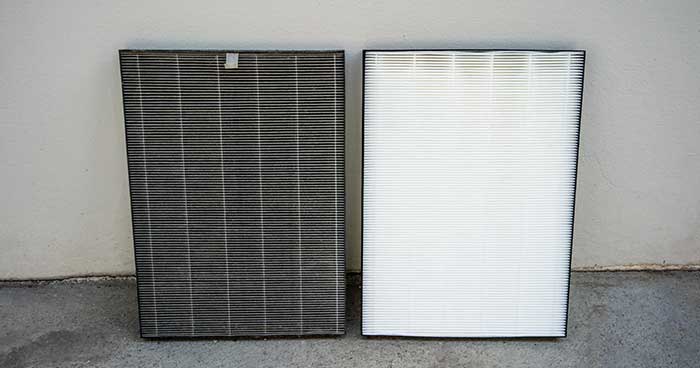Do hepa Filters Require Special Maintenance?

Understanding hepa filters
HEPA (High-Efficiency Particulate Air) filters are designed to capture at least 99.97% of particles that are 0.3 microns in diameter. This includes dust, pollen, mold spores, and pet dander. Due to their high efficiency, hepa filters are widely used in environments that require clean air, such as hospitals, laboratories, and manufacturing facilities.
Maintenance Requirements
While HEPA filters do not require extensive maintenance, regular attention is necessary to ensure optimal performance. Most HEPA filters should be replaced every 6 to 12 months, depending on usage and environmental conditions.

Cleaning Considerations
HEPA filters are generally not washable or reusable. Attempting to clean them can damage the delicate fibers and reduce their efficiency. Instead, pre-filters or pre-filters with activated carbon can be used to capture larger particles and extend the life of the HEPA filter. These pre-filters typically need to be changed every 1 to 3 months.
monitoring Airflow
Another critical aspect of HEPA filter maintenance is monitoring airflow resistance. A significant increase in pressure drop can indicate that the filter is becoming clogged. Using a manometer, facilities can measure the pressure drop across the filter, ensuring it operates within the manufacturer’s specified limits. This monitoring helps maintain the system's efficiency and indicates when a replacement is needed.

Compliance with Standards
HEPA filters must meet specific industry standards to ensure their effectiveness. The most widely recognized standard is the U.S. Department of Energy (DOE) standard, which specifies the filtration efficiency and particle size. Additionally, the European standard EN 1822 defines the classification of HEPA filters, ensuring they meet stringent efficiency criteria.
Relevant Standards and Guidelines
DOE Standard: U.S. Department of Energy HEPA Filter Standards
EN 1822: European Standard for HEPA and ULPA Filters
ISO 29463: International Standard for High-Efficiency Air Filters
Can you clean a HEPA filter instead of replacing it?

1. Cleaning vs. Replacing
HEPA filters are designed to trap very small particles, making them highly effective for air purification. While some users may consider cleaning their HEPA filters to extend their lifespan, it is generally not recommended. Cleaning can damage the filter's fibers and reduce its efficiency. Instead, replacing the filter is the best way to ensure optimal performance and air quality.
2. Effectiveness of Cleaning
Cleaning a HEPA filter may remove some dust and debris, but it often fails to restore the filter's original efficiency. Over time, the filter can become clogged, leading to reduced airflow and increased strain on the air purifier. Therefore, replacement is the most effective solution.

3. Recommended Replacement Frequency
The frequency of HEPA filter replacement depends on usage and environmental factors. Generally, it is advisable to replace HEPA filters every 6 to 12 months. In high-pollution areas or homes with pets, more frequent changes may be necessary. Regularly checking the filter's condition can help maintain air quality and ensure the air purifier operates effectively.
4. Signs of Replacement
Indicators that a HEPA filter needs replacement include reduced airflow, visible dirt accumulation, or unpleasant odors. If you notice any of these signs, it is time to replace the filter to maintain optimal air quality in your home.
How often do HEPA filters need to be changed?

General Guidelines
HEPA filters should typically be changed every 6 to 12 months, depending on usage and environmental conditions. Regular maintenance ensures that the air purifier functions effectively and continues to provide Clean air.
Factors Influencing Change
Factors such as the number of occupants, presence of pets, and local air quality can influence how often filters need to be changed.
What is the lifespan of a HEPA filter?

1. Lifespan Overview: The lifespan of a HEPA filter varies based on usage and environmental conditions. On average, a HEPA filter can last between 6 months to 2 years. Regular monitoring and maintenance are essential to ensure optimal performance.
2. Usage Impact: Filters used in high-traffic areas or homes with pets may need to be replaced more frequently. Conversely, filters in less demanding environments may last longer.

3. Maintenance Tips: To extend the lifespan of a HEPA filter, keep the air purifier clean and free from dust. Regularly check the filter for signs of wear and replace it as needed. This proactive approach helps maintain air quality and prolongs the life of the air purifier.
4. Replacement Indicators: If you notice reduced airflow or increased noise from the air purifier, it may indicate that the HEPA filter needs replacement. Regular checks can help ensure that your air quality remains high.
Should the HEPA filter be serviced and certified?

Servicing and certifying HEPA filters is crucial for ensuring their effectiveness and safety. Regular maintenance checks can help identify any issues that may affect performance. Certification ensures that the filter meets industry standards for air purification, providing peace of mind to users. It is essential to follow manufacturer guidelines for servicing and replacement to maintain optimal air quality. By prioritizing these practices, we can contribute to a healthier living environment and promote overall well-being.
 +86 18186671616
+86 18186671616 Jason@cleanroomequips.com
Jason@cleanroomequips.com
 MENU
MENU


